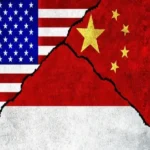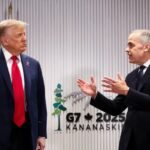Energy News Beat
Indonesia is the world’s largest Muslim country, its fourth-most populous one in general, and is on pace to become the sixth-largest economy by 2027, which is why any potential change in its presently non-aligned foreign policy after February’s upcoming elections could have far-reaching implications for the New Cold War.
Indonesia goes to the polls in February to choose its next president, vice-president, and parliament, during which time this traditionally non-aligned emerging power might end up pivoting to the West if former Jakarta Governor Anies Baswedan comes to power. He’s considered close to the US after studying there on a Fulbright scholarship, which adds context to his declaration in early November that he’ll replace his country’s “transactional foreign policy” with Russia and China with a “values-based” one.
The Australian Institute of International Affairs explained in June “Why Indonesian Presidential Candidate Anies Baswedan is Likely Bad News for China”. Their article drew attention to how much he’s hobnobbed with Western officials, including American ones, over the past year despite him no longer having an official position in the government after ending his term as governor in October 2022. This is unusual and suggests that they’re cultivating him as their agent of influence in case he wins the election.
Defense Minister Prabowo Subianto is presently leading by at least a ten-point margin according to polling from mid-November, with Anies in third place behind former Central Java Governor Ganjar Pranowo, and he’s pledged to continue outgoing President Joko “Jokowi” Widodo’s foreign policy. There are a little less than three months before the 14 February national elections, however, so this could potentially change.
Anies resorted to a vicious campaign of identity politics against his former Christian opponent in the 2017 gubernatorial elections in order to tap into his country’s hardline Islamist vote bank, which is why minorities expressed concern over a year ago after he announced his intent to run for president. The South China Morning Post published a piece in late October about how he’s trying to rebrand himself as a “moderate” despite once again allying with Islamist parties, though it’s unclear if he’ll succeed.
It therefore can’t be ruled out that Anies might revert to his dangerous electioneering policy out of desperation to increase his standing in the polls ahead of February’s vote. Another factor that could enter into play is reportedly rising popular sentiment against Jokowi’s perceived nepotism after the constitutional court recently created a loophole allowing his son to run as vice-president under Prabowo. One poll from early November suggests that this already reduced the Defense Minister’s appeal.
The combination of weaponized identity politics, perceived nepotism as explained above, and Western meddling via potential information warfare provocations against Prabowo as well as the possible instrumentalization of allied “NGOs” could lead to Anies surging in the polls ahead of February’s vote. If he wins, then his pledged “values-based” foreign policy could lead to Indonesia aligning itself with the West in the New Cold War, which would have far-reaching implications for this global competition.
Indonesia is the world’s largest Muslim country, its fourth-most populous one in general, and is on pace to become the sixth-largest economy by 2027, thus explaining why its foreign policy is being closely followed by many across the world. Jokowi has sought to emulate Indian Prime Minister Narendra Modi’s multi-alignment policy of balancing between the US-led West’s Golden Billion and the Sino-Russo Entente, which readers can learn more about by reviewing these three analyses:
* 28 June 2022: “Interpreting Indonesia’s Mediation In The Ukrainian Conflict”
* 11 November 2022: “Indonesia Will Ultimately Have To Decide Which Military Side It’s On In The New Cold War”
* 1 September 2023: “Indonesia’s Wait-And-See Approach Towards Joining BRICS Is Interesting”
In pursuit of balanced relations with both those two de facto New Cold War blocs, Indonesia officially deepened its comprehensive strategic partnership with China in October and then announced a comprehensive strategic partnership with the US less than a month later in mid-November. It also organized the first ASEAN military drills in September, the same month that it participated in multilateral drills with the US. Right now, Indonesia and the US are also carrying out bilateral drills till 11 December.
This sequence of events suggests that Indonesia is tilting closer towards the US, which isn’t surprising considering that it took issue with the latest publication of China’s annual map that appears to lay claim to some of its maritime territory in the South China Sea. At the same time, however, China remains an important economic partner after pledging nearly $22 billion worth of new investments in Indonesia in early September. This proves that neither wants maritime disputes to impede their trade ties.
Nevertheless, the existence of such a dispute in spite of each party trying to downplay it could become a sensitive election issue if Anies decides to make it one, whether on his own prerogative or at the urging of his Western partners. This factor could add to the previously mentioned ones and possibly lead to him surging in the polls ahead of February’s elections. As was earlier written, the West wants him to win since they expect that his “values-based” foreign policy would advance their New Cold War interests.
The people’s will should be respected no matter what the outcome may be, but they should also be aware of the larger geopolitical games at play in the upcoming elections. For as appealing as Anies’ demagogic rhetoric might be to some, they shouldn’t lose sight of the fact that he’s the West’s preferred candidate because they envisage him overseeing Indonesia’s pivot towards their bloc at the expense of its traditionally non-aligned foreign policy. This would indisputably damage ties with Russia and China.
Indonesia’s rise as a globally significant power would therefore be at risk of derailment in that scenario since hitherto mutually beneficial trade and investment ties with China could suffer if it starts saber-rattling against the People’s Republic at the West’s behest. These aforesaid ties were largely responsible for Indonesia’s astronomical growth that’s poised to make it the world’s sixth-largest economy by 2027. If they’re endangered, then so too might its grand plans be as well, after which the West could exploit it.
To explain, Indonesia needs to continue growing at its present rate in order to offset demographic challenges to its domestic stability. If this trajectory is derailed through Western-encouraged self-inflicted damage to its economic ties with China, then unemployment could once again become a problem with all that entails for associated political and security threats. These could take the form of a Color Revolution, impoverished people turning towards radicalism, and more terrorist-separatist threats.
In that event, Indonesia could more easily be divided-and-ruled by the West, especially if that bloc decides to support anti-state movements. The only way to confidently defend itself from these Hybrid War threats is for Indonesia maintain mutually beneficial trade and investment ties with China, which thus requires retaining its balancing act. Anies’ victory in the next elections could result in a pro-Western pivot that ruins those relations, however, hence why voters should think twice before supporting him.
The post Indonesia Might Pivot To The West After Its Upcoming Elections In February appeared first on Energy News Beat.








